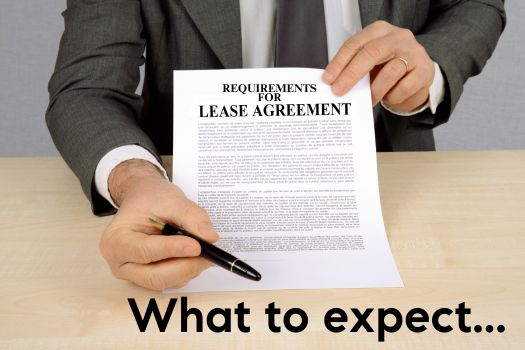When you’re looking to rent a home in the Austin area, it helps to know what you’re getting into upfront. Every landlord may have a slightly different process, but the baseline expectations? They don’t shift much. Understanding the typical Austin area rental and leasing requirements can help you move faster, avoid delays, and set yourself up for success.
If you’re searching for clarity and professional insight on lease requirements Austin landlords consistently use, you’re in the right place. As someone who has worked in real estate for decades, I’ve seen just about everything. I’ve trained thousands of agents across the country, taught the ins and outs of this business, and helped countless tenants navigate their path to a rental. Now, I want to help you do the same.
Let me walk you through the essentials you need to know before applying to lease a home in the greater Austin area.

TLDR: Typical Austin Area Rental and Leasing Requirements
- To rent in the Austin area, you must meet strict application and income requirements.
- Every applicant 18+ must apply individually and show proof of income, identity, and creditworthiness.
- Lease requirements in Austin vary by landlord, but income must usually be 3x rent.
- Criminal, rental, and credit histories are thoroughly evaluated and can impact approval.
- Robbie English at Uncommon Realty is your best ally, offering decades of experience, expert guidance, and unmatched insight into the Austin rental market.
Application Fundamentals You Can Count On
Let’s start with the basics. If you’re 18 or older, you’ll need to submit your own individual application. No exceptions. Each adult applicant must verify identity, provide financial documentation, and complete a full screening process. Your signature is just the start.
Expect to be asked for a valid government-issued ID, such as a driver’s license or passport. Most landlords also require a copy of your social security card or visa. This documentation helps confirm who you are and ensures all other records match up.
Your income proof will carry weight. You’ll usually be asked to submit the last two paycheck stubs, or if you’re self-employed, tax returns and bank statements from the last few months. Whether you’re a salaried employee, a gig worker, or on fixed income, what matters is clear documentation that matches your name, shows consistency, and proves you can handle the rent.
Also, prepare to pay a non-refundable application fee. It varies, but the property management company sets this, and it must be paid in full before they process anything.
Why Your Income Matters More Than You Think
When landlords evaluate you, they look for one major thing: whether you can comfortably afford the rent. Lease requirements Austin landlords use often hinge on a simple formula. In most cases, your gross monthly income must equal at least three times the rent.
If you’re applying solo, you need to meet that benchmark yourself. Roommates? Then each of you may need to meet the requirement separately unless the landlord accepts combined income. Don’t guess. Ask in advance and make sure you know what financial picture they want to see.
Income sources that qualify include salary, retirement income, social security, court-ordered payments, and verified subsidies. But these must be documented. No verbal agreements. No under-the-table earnings.
If you’re relocating, an employment offer letter on official company letterhead will help your case. If you’re commissioned or self-employed, a clean tax return and consistent bank statements will speak volumes. If you’re falling short on income, you may be able to use a guarantor or offer prepaid rent—but that too depends on the owner’s policy.
Credit Check: What They’re Really Looking For
A full credit report will be run on every applicant. This is non-negotiable. Why? Because it tells the story of your financial responsibility. And in the eyes of the landlord, past behavior often signals future performance.
Accounts in good standing help your case. But unpaid debts to previous landlords? Collections? Excessive late payments? These will raise red flags. Especially if you have a history of lease violations, evictions, or unresolved disputes.
Some landlords might still approve your application but require a higher security deposit. Others may outright decline depending on the severity of your credit issues. It’s critical to be honest about your background from the start.
Rental History That Speaks for You
Past rental behavior plays a key role. Think of it as a reference check, but more in-depth. Late rent payments, bounced checks, or any eviction filings will often show up. And if you’ve left properties with unpaid balances, even years ago, those marks might come back to haunt you.
To be clear, one mistake years ago might not ruin your chances—especially if you’ve demonstrated responsibility since then. But multiple incidents, especially recent ones? That will almost always result in a denial. Present a clean, honest track record, and be prepared to explain anything questionable.
Criminal Background Checks Are Standard
Almost every lease application in the Austin area includes a criminal background check. Crimes involving violence, drugs, or property damage may disqualify you. Registered sex offenders are generally denied without exception.
That said, not every offense is a deal breaker. The nature, severity, and age of the incident are all considered. Some landlords may allow exceptions for older convictions or non-violent crimes. If you’re unsure whether your history might disqualify you, talk to someone who can guide you through the nuance—someone like me.
Roommate Rules You Should Understand
Planning to share your rental with others? You need to know how landlords treat co-applicants. Legally married couples are typically treated as a unit. Everyone else—including friends, siblings, or unmarried partners—must each apply and qualify separately. That means income, credit, and background checks for everyone.
Some landlords prefer to deal with one or two applicants max. Others welcome groups. But when you’re choosing roommates, keep in mind that their financial and rental history affects your ability to get approved.
Lease Guarantors: A Possible Safety Net
If you don’t meet the financial or credit requirements on your own, a lease guarantor might be an option. This is someone who agrees to pay your rent if you fail to do so. But they’re not just signing for fun. Guarantors must meet strict criteria: typically, they need to earn four times the rent and have excellent credit and no criminal background.
Not every property accepts guarantors. And even when allowed, it doesn’t override serious rental or criminal history issues. It’s best to treat this as a backup, not your primary plan.
Pet Policies Aren’t All the Same
Want to bring a pet with you? Great—but you’ll need to verify whether the property allows it. Every landlord sets their own pet policy. Some allow pets with a deposit or pet rent. Others exclude them entirely. Breed restrictions are common, especially for larger or historically aggressive breeds.
Be ready to show proof of vaccination, licensing, and spaying/neutering. Many properties require a third-party pet screening that collects documentation, vet records, microchip info, and more. There may be a fee involved.
Support Animals Follow a Different Set of Rules
Unlike pets, support and service animals are protected under federal law. You won’t be charged extra rent or a deposit. But don’t assume that means you skip the documentation. Landlords still have the right to require proof that the animal qualifies under the law. That often includes medical or psychological verification.
Pet screening systems are frequently used to help manage this process. Make sure you have accurate, current documentation to ensure the approval process goes smoothly.
Occupancy Standards Apply
There are also rules regarding how many people can live in a unit. These are typically based on the number of bedrooms and are intended to ensure safety and comfort for all occupants. Here are the most common standards in the Austin area:
1-bedroom homes: Up to 2 adults plus 1 child. 2-bedroom homes: Up to 4 adults plus 1 child. 3-bedroom homes: Up to 6 adults plus 1 child. 4-bedroom homes: Up to 8 adults plus 1 child.
Keep these standards in mind if you’re applying with a larger household. Not every property will make exceptions.
Why Robbie English Is Your Best Resource
Navigating all of these lease requirements in Austin can be overwhelming. But you don’t have to go it alone.
I’m Robbie English, Broker and REALTOR with Uncommon Realty, I’ve dedicated my career to mastering the rental and leasing landscape. I don’t just help clients get approved—I help them build long-term strategies that support their goals. With decades of real-world experience and the unique perspective of having taught other agents how to succeed in real estate, I bring a rare level of insight to every interaction.
Whether you’re new to renting or simply want an edge in this competitive market, my team and I are here to help you succeed. We offer expert guidance on all the typical Austin area rental and leasing requirements and work with you to make sure your application stands out. You get the benefit of decades of experience and a strategic partner who is in your corner.
Let’s face it—not all agents are created equal. I’ve made it my mission to rise above the rest, not for my own recognition, but for your success. It’s about giving you every advantage in the process.
Reach out today, and let’s make your next lease not just a transaction, but a strategic move forward.






Leave a Reply